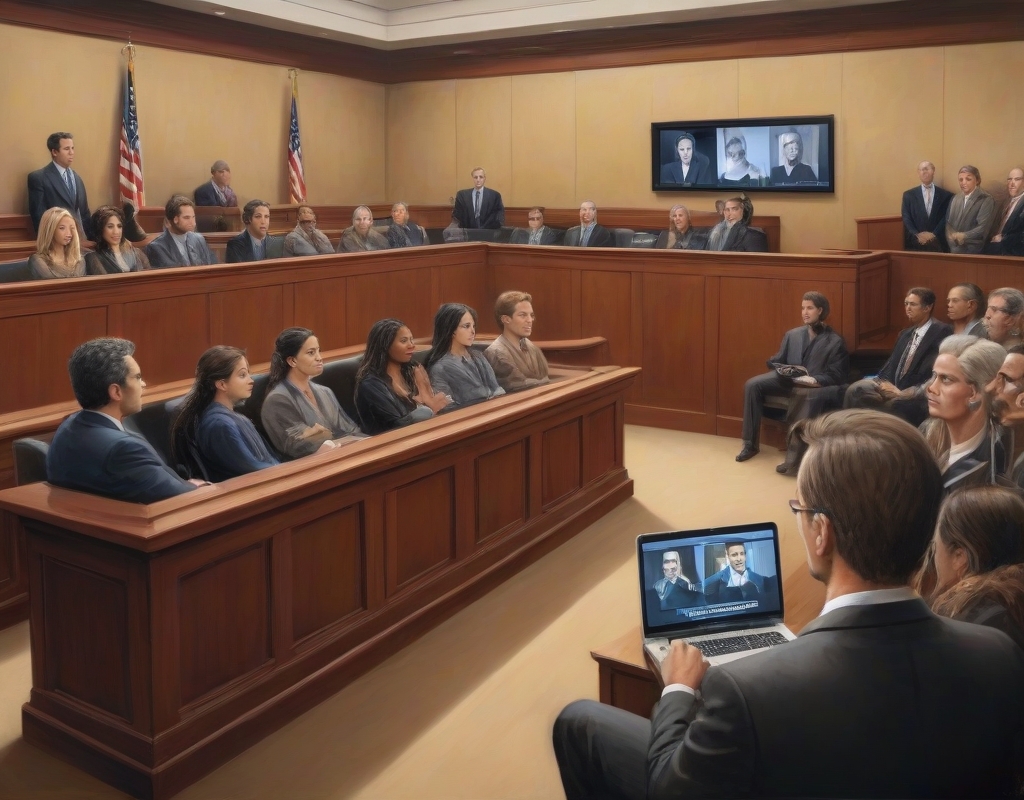In a surprising development that has captivated observers from both the entertainment and legal realms, Sean “Diddy” Combs finds himself at the center of serious legal allegations and an inventive media strategy purportedly designed to sway public sentiment and influence potential juror perceptions. Currently detained at the Metropolitan Detention Center in Brooklyn, the renowned music mogul is facing charges including racketeering, sex trafficking, and more, which paint a starkly different picture from his public persona as a philanthropist and cultural icon.
At the heart of recent prosecutorial claims, a video orchestrated by Diddy and released on his birthday has become a focal point. In this video, Diddy’s children, including his young daughter Love, sing a heartfelt rendition of “Happy Birthday”, conveying messages of affection and support. This video, distributed widely across various social media channels, has been flagged by prosecutors as not merely a genuine display of familial love but a calculated move directed by Diddy to garner sympathy and potentially influence a future jury.
This raises important questions about the legal implications and the ethical lines blurred by using social media to shape public narratives, especially in a legal context. Prosecutors argue that Diddy’s active management of the video’s distribution and engagement from behind bars illustrates a deliberate attempt to manipulate public perception and, by extension, affect judicial fairness. They claim he used analytics to gauge the video’s impact on viewers, accentuating the methodical nature of this strategy.
Moreover, this case has illuminated how deeply integrated social media and real-time data analytics have become in shaping narratives. Diddy’s background as a seasoned media figure may have given him unique insights into leveraging digital platforms, an advantage that prosecutors believe could seriously undermine the impartiality of judicial processes if not checked.
While his legal team is vigorously contesting these allegations and has made repeated attempts to secure bail—proposing a substantial $50 million bond recently—the prosecution counters by highlighting risks related to his powerful influence and potential to tamper with witnesses or flee. They have detailed past behaviors where Diddy purportedly sought to influence or intimidate potential witnesses, bolstering their argument for his continued detention without bail.
As the legal back-and-forth intensifies, observers are drawing parallels with past legal battles involving high-profile figures where media strategy played a conspicuous role. Legal and media experts point to a growing trend where public figures use their platforms to affect outcomes indirectly by shaping public discourse. Dr. Karen Meyers, a specialist in media strategy, noted in an interview that whilst judicial decisions should strictly come from unbiased evaluations of evidence presented at trial, the pervasive impact of social media and celebrity could skew perceptions substantially.
This blending of celebrity culture with media-savvy maneuvers to potentially sway legal outcomes also bears significant social ramifications. Advocates and observers concerned with issues of justice, particularly related to severe charges such as sex trafficking, stress the need to maintain focus on the victims and the substantive legal issues at hand, rather than getting absorbed by the defendant’s fame and persuasive media narratives.
These developments suggest that Diddy’s case could serve as a landmark in understanding the increasingly complex dynamics between celebrity, digital influence, and judicial integrity. As this case progresses towards the scheduled trial date of May 5, it will undoubtedly continue to garner significant attention, serving as a critical barometer for how similar cases might be approached in the future where celebrity influence and media strategies play pivotal roles.
In conclusion, as the legal battle unfolds, it is a poignant reminder of the enduring tension between celebrity influence and judicial fairness in the age of digital media. Diddy’s situation exemplifies the intricate interplay of wealth, power, and the pursuit of justice, setting a precedent for future cases in the digital era. As society grapples with these issues, the outcome of this high-profile case will likely resonate far beyond the courtroom, influencing future legal strategies and the overarching dialogue about accountability in the face of celebrity and power.




